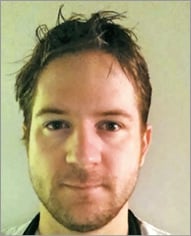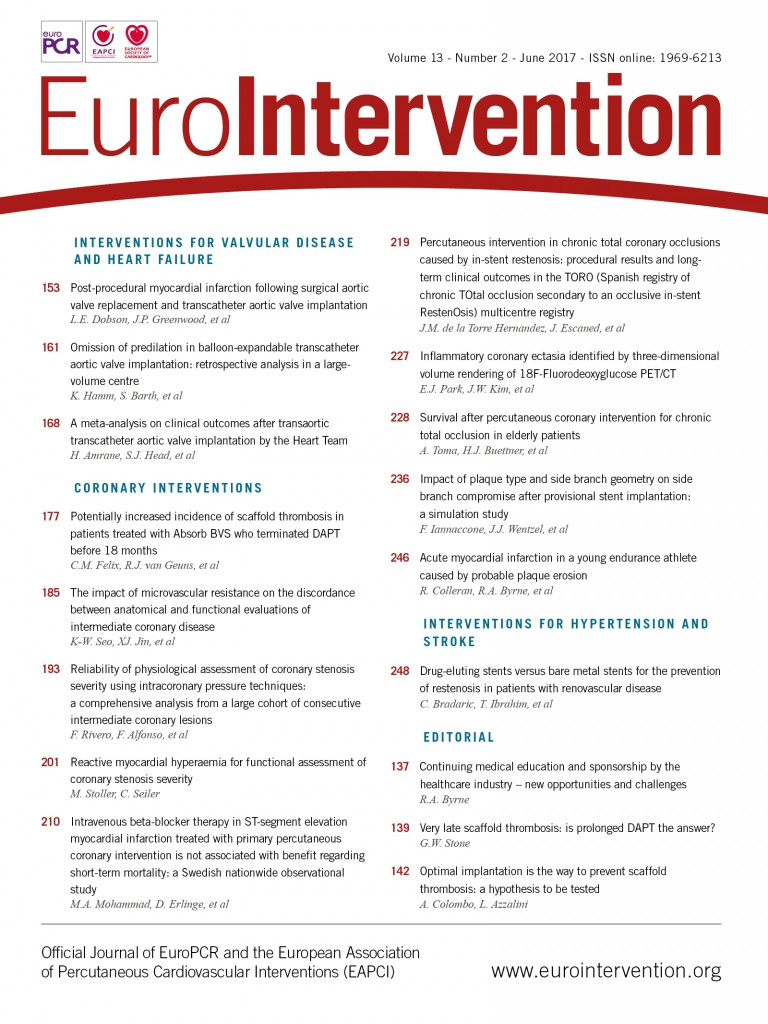EAPCI FOCUS
An interview with Gabor G. Toth, Chairman of EAPCI New Initiatives For Young Interventionalists Committee
Can you tell us what the general goals of the Fellows Course are and how these fit in with the overall goals of your committee and the EAPCI?
The mission of the EAPCI New Initiatives For Young Interventionalists Committee is based on three pillars, namely “Education”, “Network” and “Career”. The EAPCI Fellows Course itself traditionally hosts fellows from all over the world, who are in the early phases of their interventional training. In the programme, besides state-of-the-art lectures presented by great experts, we also put a lot of emphasis on practical aspects via interactive case discussions. When you take into account all these features, there is no question that the Fellows Course is one of the NIFYI Committee’s flagship projects, providing an excellent platform for education, networking and building future careers.
What were the specific subjects and the objectives of this year’s Course?
This year the course was designed to provide an update on standards of PCI including indications, tool selection, treatment of specific lesion subsets and interventional pharmacology. The programme was also enriched by a brief foray into the structural field.
How many participants were there (and if possible can you provide a breakdown of where they were from)?
This year 100 young interventionalists coming from 27 different countries participated in the Fellows Course, proving that there is real interest and an obvious need for such events in the young community.
What was the general reaction of participants to this year’s course?
For the first time this year the EAPCI Fellows Course was linked to EuroPCR, opening up new opportunities for all attendees. All the topics which were discussed during the Fellows Course could be further followed up in more detail during EuroPCR itself. With this in mind, we even indicated at the end of each session which sessions of EuroPCR might be interesting for the fellows in that given topic. In this way, attendees could follow a nicely structured and complete learning track of interventional cardiology during the Fellows Course and throughout the week at EuroPCR.
What are the plans for the next Fellows Course?
Our goal cannot be anything less than making the 5th EAPCI Fellows Course at least as successful as this 4th edition was. To achieve this, we will try to retain what went well and improve what needs to be improved, as expressed by the attendees in the feedback questionnaire.

Gabor G. Toth, MD, PhD,Chair, EAPCI New Initiatives For Young Interventionalists Committee
E-mail: [email protected]
University Heart Center Graz, Graz, Austria
| NEWS ■ The EAPCI is actively committed to young practitioners! Join today for free and receive the quarterly newsletter highlighting education, science and networking opportunities in interventional cardiology to help you boost your career! More info at https://www.escardio.org/EAPCI ■ Fellows Course 2017. Organised by the New Initiatives For Young Interventionalists Committee, the EAPCI Fellows Course was a huge success! Access all the online resources at https://www.escardio.org/Sub-specialty-communities/European-Association-of-Percutaneous-Cardiovascular-Interventions-(EAPCI)/Education/European-Interventional-Cardiology-Fellows-Courses. ■ Connect to the EAPCI LinkedIn group – EAPCI Young to network with cardiologists in training: https://www.linkedin.com/groups/6579395. ■ The new EAPCI μFellowship Standards programme is launched! Discover short-term, observational training (four weeks long) on a dedicated technique; organised by industry on a national level, based on predefined EAPCI training standards. https://www.escardio.org/The-ESC/ESC-Young-Community/Young-interventionalists/fellowship |

